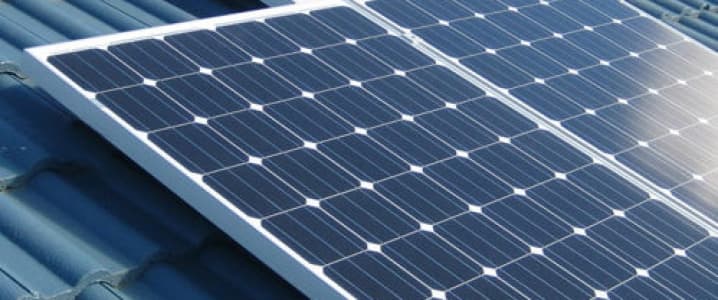The promise of renewable energy as a better alternative to fossil fuels is certainly considerable. Solar and wind farms produce no harmful emissions while they operate, and their efficiency rates have been improving while production costs have been declining. Proponents argue that solar and wind are already cost competitive with oil and gas. Not in extreme winter weather, however.
Critics of the Green New Deal proposed by Congresswoman Alexandria Ocasio-Cortez have used the opportunity to point at the shortcomings of solar and wind in extreme weather conditions as an argument against a Green New Deal. One of them, the director of research at the Americans for Limited Government, recently tackled these shortcomings in an article.
Richard McCarty noted that wind turbines’ limited operation in low subzero temperatures and solar panels’ inability to produce power when they are covered with snow. Indeed, both of these are factual observations.
Wind turbines are shut down when the temperature falls below -20 degrees C (-4 F) because the buildup of ice on the blades interfere with their performance. According to McCarty, during the recent cold spell in the States, wind turbine shutdowns reduced the contribution of wind farms in parts of the country from more than 50 percent to just 3 percent.
Solar panels have no problem with the cold—in fact they operate more efficiently in colder weather because heat interferes with their operation. They do have a problem with snow cover, though. OPV panels convert sunlight into power and if their access to sunlight is blocked by a snow buildup, they cannot operate.
Solar power proponents note that panels are installed at an angle to the ground so the snow can slide off them and also note they are easily cleanable from the snow. In a snow storm, however, chances are that cleaning solar panels is the last thing on people’s minds.
Related: Big Oil Faces Multibillion Dollar Fallout From Algeria Crisis
These limitations of solar and wind as opposed to coal, oil, and gas, which are not affected by the weather, are a valid argument in the energy debate. Yet what they seem to highlight more than the perceived advantages of fossil fuels in terms of operating limitations is the importance of energy storage.
There are few places on Earth with more than 300 sunny days a year that would be optimal for solar power. Clouds and storms are frequent in many parts of the world and so are blizzards during winter in places with a temperate climate. Since there is nothing we can do to change the weather, focusing more efforts on energy storage could be the best idea at this stage.
Energy storage can offset the shortcomings of both wind and solar, providing energy to users even when the wind turbines need to shut down and the PV panels are covered in snow. The problem is, this energy needs to be cost competitive with the energy produced by the fossil-fuel power plants. The technology is yet to get there. The good news is, a growing number of planned wind and solar farms feature an energy storage facility as an integral part of the project.
By Irina Slav for Oilprice.com
More Top Reads From Oilprice.com:
- The ‘Marginal’ Producer Driving The Oil Price Rally
- Oil & Gas Discoveries On The Rise As Oil Majors Dive In
- Shell Ventures Into China’s Shale Oil



















Solar and wind are certainly impacted by the environment. But, so too are other electricity sources. Coal plant operations are impacted when stored coal freezes. Thermal plant operations (including nuclear) are discontinued, or at least reduced, when cooling water temperatures are elevated or flow rates are reduced. Natural gas plant operations have been curtailed when fuel availability is constrained due to more critical needs, such as residential heating. Oil based fuels may be available, but only at extreme cost, particularly at remote locations. Flooding, even threats of flooding, cause discontinuance of thermal plant operations. Plants that are air cooled can have operations impacted when air temperatures are elevated.
All technologies have issues. The challenge is to understand and deal with them.
The premise of this article is wrong. Publishing it is misleading.
Electricity generation from solar and wind was very stable, and without it there'd have been many more load shedding events.